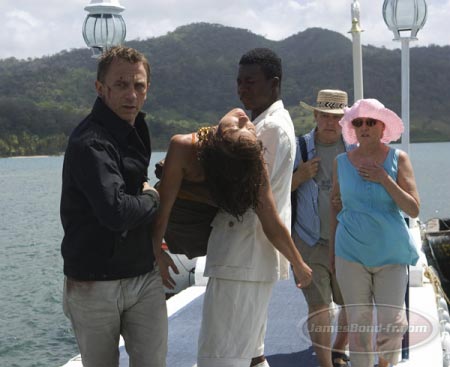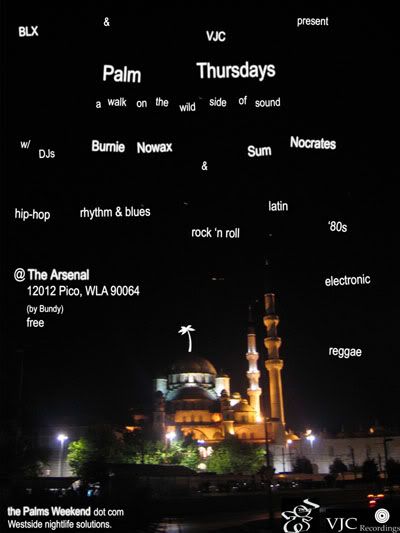
by my boy P-Frank Williams (click to visit his site prophetfromit.com)
"Have you heard?"
It was singer Shirley Murdock, a longtime friend of Zapp, the seminal '80s funk band Lester had formed with his brothers more than two decades earlier.
"Heard what?"
"It's Larry," she sobbed. "He's dead."
Lester's next question was both inevitable and horrifying. His oldest brother was dead, and his thoughts immediately turned to his best friend and other brother. "Where's Roger?"
Shot as well, Murdock replied. By Larry.
That's where memory gets hazy for Lester, where he loses all understanding of time and space. Tensions had been mounting between Larry and Roger -- over money, over the family business, over Roger's career as a solo artist and Larry's role as his manager. But not even their own family saw this coming. Larry Troutman had shot his superstar baby brother, had put four bullets filled with love and hate into Roger's torso in an alley behind the family's recording studio in Dayton, Ohio. Then Larry turned the gun on himself, leaving the first family of Ohio funk stunned and grieving. And the shooting reverberated far beyond the Troutman family, far beyond Dayton city limits. Roger Troutman had been a funk visionary, the man who'd popularized the vocoder talkbox as an instrument and one of the most frequently sampled artists in the history of hip hop -- particularly in the influential strain known as West Coast funk. His murder, and the unthinkable way it went down, was unforeseeable, unfathomable, inexplicable. It was not the way Roger's remarkable life was supposed to end. Lester Troutman ran out into the street, dropped to his knees, and cried.
Police found Roger Troutman at about 20 minutes past 7 that April morning in 1999, in the alley behind Roger Tee Enterprises, the family's Salem Avenue recording studio. Roger had four bullets from a .357 Smith & Wesson revolver in his torso, two in the front and two in the back. Witnesses said he'd been shot as he tried to get out of the passenger seat of a black sedan.
Minutes later, dispatchers got a call: A black Lincoln had slammed into a tree less than a mile away. When officers arrived at the 2100 block of Harvard Boulevard, they found Larry Troutman in the driver's seat, dead from a self-inflicted shot to the head. The bullet, a coroner later confirmed, came from the same .357.
"My brothers and I rode around and tried to collect our thoughts," says Lester of the days following the murder-suicide. "We went to my sister's house, and we wouldn't let nobody come in for a week. ... We got through it with love and bonding.
"A week before was Columbine, and I think there was some type of military conflict [going on]. My mom was watching TV, and she was like, 'I can understand how all those boys' mothers feel.' That killed me."
Word of the shootings ricocheted around Dayton, with pastors somberly reporting the news during Sunday services. The community was stunned.
"It was just so unthinkable," says Dale Degroat. "Larry was the guy in the beginning who told me, 'A lot of money is gonna cross your hands. But never let the money be more important than the people.'"
Nobody knows exactly why Larry Troutman did what he did, but family members say Roger wanted to break off the business relationship with his older brother and manager. Roger's career, independent of Zapp, was on an upswing, and just when Roger's fortunes could have brought new money into the flailing Troutman Enterprises, he was asking for a split from Zapp and, particularly, from Larry's management.
But it was almost certainly more than purely an issue of money. Roger was 47 years old, Larry was 54; for more than a quarter of a century, from Little Roger and the Vels to Roger and the Human Body to Zapp and Roger to just Roger, they'd been part of a team. Now Roger wanted to break that up.
"At a certain point, Roger wanted to do his own thing," says Terry, "which presented a conflict. And so therefore, you've got a conflict that was deeper than business. It was their whole life they'd been together. And then for it to break off? That was a strong move, man. Strong move."
Asked if he resents Larry for taking his brother and best friend, Lester answers quickly. "Of course I resent it. I resent that my brother Roger is gone more than anything else in the world. I resent whatever sickness came over Larry that caused him to do something like that."
Meanwhile, Zapp has reassembled without Roger and begun touring. The group recently appeared at Verizon Wireless Amphitheater in Irvine alongside funk and hip hop stars ranging from the Gap Band to Morris Day and the Time to Doug E. Fresh and the Sugar Hill Gang. The show, a tribute to Roger Troutman, marked the first time Zapp had performed in front of such a massive crowd without the band's charismatic lead singer and guitarist.
"People see us and say we haven't lost it," says Degroat. "But the truth of the matter is that we lost everything. But God can restore. Roger's not replaceable, but they say that if you have ever built anything solid, anything of value, then it will last long after you're gone."
Roger and Larry Troutman were laid to rest with a joint funeral six days after the shooting, in Monroe, Ohio, halfway between the brothers' native Hamilton and their business and residential home in Dayton. Some 2,000 to 3,000 friends, relatives, and fans packed Solid Rock Church for the service; hundreds more had to settle for a closed-circuit feed outside the main sanctuary. Bootsy Collins was there to pay his respects to the musicians he'd helped break more than two decades earlier, as were members of fellow funk elite the Gap Band, the Ohio Players, and Lakeside. Blues singer Gerald Levert sent flowers, as did Warner Bros. Records. And Rufus Troutman III, nephew to Roger and Larry, performed "Amazing Grace."
He sang it, naturally, through a talkbox.











